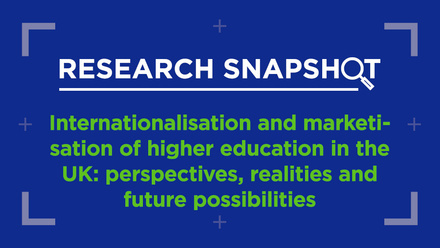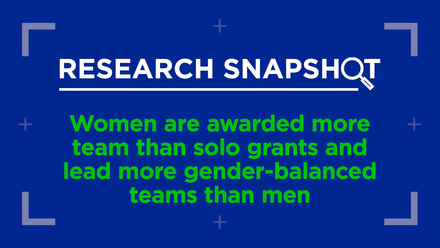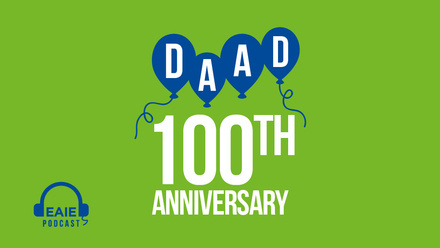Foundations of meaningful leadership

"If you want to build a ship, don’t drum up the men and women to gather wood, divide the work, and give orders. Instead, teach them to yearn for the vast and endless sea."
― Antoine de Saint-Exupéry
Leadership is something people demonstrate and use every day at different scales and in different roles, as managers, between colleagues, within families. Leadership is a quality, a personality trait, a characteristic that people can have to bigger or lesser degrees. But it’s also a specific role that people can take up. In such cases, leadership becomes the primary characteristic which is expected of them.
In this piece I want to reflect for a moment on how I understand leadership: what it means, how it plays out in our sector of international higher education and how I experience the leadership role I currently play within the EAIE.
Real leadership is not about being the boss. When people only do what you tell them to do because their paycheck depends on you or because they are afraid of you, that does not constitute leadership.
Real leadership is something else. Real leadership is about the ability to find common ground and a common direction, to inspire, to energise and to assume responsibility. It’s about telling a story that brings people together, that transcends short-term differences and that fosters longer-term thinking and strategies based on common values and common goals.
In his book ‘Try not to try’, the philosopher Edward Slingerland writes about the notion of ‘de’ (德) in ancient Chinese philosophy, which refers to ‘the inner moral power through which a person may positively influence others’. By appearing effortless, natural, confident and tactful, the behavior of a successful leader ‘seems to flow spontaneously from their very nature’. This is what gives them great influence over others. Spontaneity is the basis of charisma, and, therefore, influence. This insight corresponds very well with recent social psychology research, which shows that when others judge you – and decide whether they value your leadership – your warmth and competence are the essential factors determining their response. These are the two primary dimensions of social judgment: warmth comprises helpfulness, sincerity, sociability, fairness and trustworthiness; competence is about knowledge, efficacy and strength. While many leaders tend to base their leadership on competence and strength, research shows warmth is actually the most consequential factor. "Before people decide what they think of your message, they decide what they think of you." If they don’t trust you, nothing will work in the long run. Showing warmth is the most essential leadership skill.
In an area of work which is highly value-driven and human-centered, such as international higher education, a leadership style built on trust is even more important. It’s about having credibility, projecting empathy and trustworthiness.
The EAIE Barometer data shows that the people working in our sector are exceptionally committed and attached to their work, even though there are major challenges, requiring a lot of resilience and adaptability. Our association, the EAIE, is made up of a community of people who share values, ideals and a positive spirit to be a force for good in the world. To assume a position of formal leadership in this context is a real privilege. My hope when taking up the role of Vice-President and later President of the EAIE was that our community would be open to an empathic leadership style, based on giving and receiving trust. My hope was to have influence by telling the story of international education as a yearning for the vast and endless sea. I have not been disappointed. I feel I have been able to give direction and energise our community for our activities and for volunteering within our association. I have also been able, together with my colleagues in the governance, to navigate our association through a number of deep and difficult changes. I am very thankful for that.
When assuming a leadership position in a relatively complex organisation like the EAIE, the role is about clarifying the common direction, crafting and telling a compelling and inspiring story and not shying away from taking responsibility. In a multi-faceted area like international higher education, leadership is also about connecting many dots, about trying to see and describe the bigger picture. It’s about strengthening the feeling of belonging to a dedicated community and the empowerment that this feeling brings.
During my EAIE leadership journey I have learned a great deal. Here are some of the main lessons I am taking away:
1. Find enjoyment in connecting people. Words matter.
Connecting people was the skill I was hoping to use a lot during these years, and that has proven to be the case. The EAIE is a unique organisation, bringing together a large number of individual professionals from across international education. We are a platform for exploring diverse aspects and views, facilitating conversations, peer learning and exchange. We don’t dictate anything or vote on specific positions. However, we do stand for certain values, as clearly expressed in the vision and mission of the EAIE; I see my role as president of the EAIE in contributing to shaping the narrative on international education, bringing clarity in the words we use to describe our impact and the value we bring to society.
2. Own your responsibility.
Being responsible for an organisation means you are the guardian of the DNA of that organisation. And if the DNA is about values, as is the case with the EAIE, that becomes a moral obligation. We believe in international cooperation, in education as a force for good in the world, in building mutual understanding as a basis for respect and solidarity across boundaries of nations and cultures. At the deepest level, what unites us is our belief in universal humanity, which is not trivial in our day and age. This is what I have tried to cultivate on every occasion: the human aspect. Even though humility is a very important quality, taking up a role that involves significant responsibilities requires the willingness and the courage to own and live that responsibility.
3. Change is messy and complicated.
I have learned a lot about change management. The EAIE is an organisation many people feel emotionally attached to, which is its great strength. But this is also the reason why change is difficult. First of all, I learned that time is important. People just need time to get used to the idea of change. It’s a kind of mourning process, saying goodbye to the old. Secondly, take people along step by step. Even though you might be thinking several steps ahead and the logic is perfectly clear in your mind, people need and deserve the chance to digest the logical steps in the thought process one by one. A leads to B, and you know in your mind that logically B can only lead to C. Still, you can’t expect people to go straight from A to C. Logic is your friend, and logic works step by step.
There is an old Dutch expression that says that ‘trust arrives on foot and leaves on horseback’. I have not found this to be true within the EAIE.
4. Be thankful.
A leadership position is a privilege. There is an old Dutch expression that says that ‘trust arrives on foot and leaves on horseback’. I have not found this to be true within the EAIE. This is a critical but also generous, positive and forgiving community. There is a lot of willingness to compromise and put aside differences of opinion, as long as you are genuine and sincere in your belief in our common ideals. Be kind, be honest. It works. And have some humor, that’s important too.
Leadership is an elusive concept. It means very different things in different contexts and at different times, both when the sailing is smooth and when difficult choices must be made. Genuinely believing in the bigger cause of the community, in this case the unique potential of international higher education to contribute to a better world, is an essential condition for building trust. Aspiring to be a warm and genuine human should always come first.
If you want to delve further into ideas surrounding leadership in international higher education, you can download 2024 Summer Forum. In this edition of the EAIE's exclusive member magazine, you will find a range of articles that critically engage with leadership and management from a variety of perspectives.






